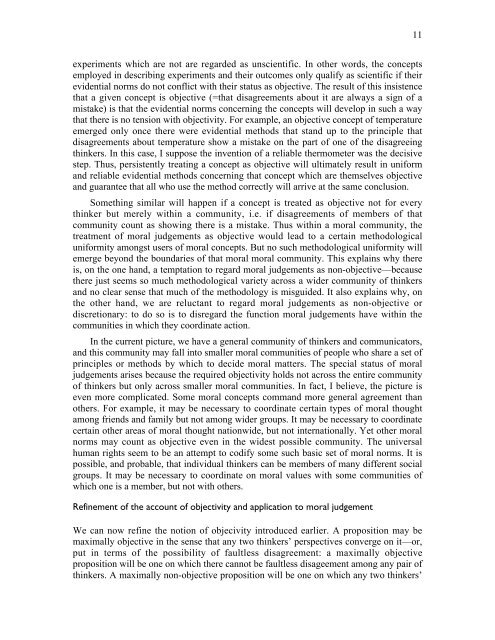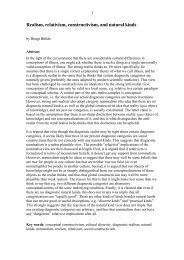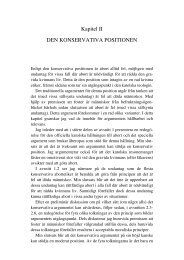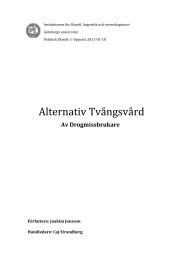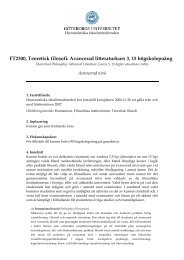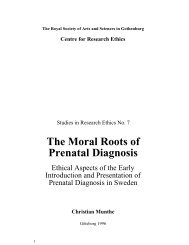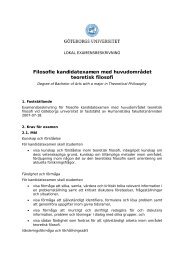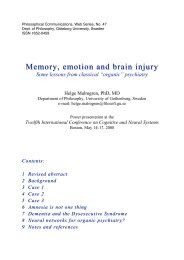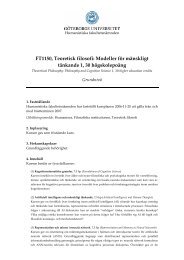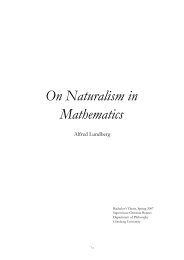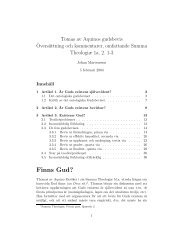Moral Relativism
Moral Relativism
Moral Relativism
- No tags were found...
Create successful ePaper yourself
Turn your PDF publications into a flip-book with our unique Google optimized e-Paper software.
11experiments which are not are regarded as unscientific. In other words, the conceptsemployed in describing experiments and their outcomes only qualify as scientific if theirevidential norms do not conflict with their status as objective. The result of this insistencethat a given concept is objective (=that disagreements about it are always a sign of amistake) is that the evidential norms concerning the concepts will develop in such a waythat there is no tension with objectivity. For example, an objective concept of temperatureemerged only once there were evidential methods that stand up to the principle thatdisagreements about temperature show a mistake on the part of one of the disagreeingthinkers. In this case, I suppose the invention of a reliable thermometer was the decisivestep. Thus, persistently treating a concept as objective will ultimately result in uniformand reliable evidential methods concerning that concept which are themselves objectiveand guarantee that all who use the method correctly will arrive at the same conclusion.Something similar will happen if a concept is treated as objective not for everythinker but merely within a community, i.e. if disagreements of members of thatcommunity count as showing there is a mistake. Thus within a moral community, thetreatment of moral judgements as objective would lead to a certain methodologicaluniformity amongst users of moral concepts. But no such methodological uniformity willemerge beyond the boundaries of that moral moral community. This explains why thereis, on the one hand, a temptation to regard moral judgements as non-objective—becausethere just seems so much methodological variety across a wider community of thinkersand no clear sense that much of the methodology is misguided. It also explains why, onthe other hand, we are reluctant to regard moral judgements as non-objective ordiscretionary: to do so is to disregard the function moral judgements have within thecommunities in which they coordinate action.In the current picture, we have a general community of thinkers and communicators,and this community may fall into smaller moral communities of people who share a set ofprinciples or methods by which to decide moral matters. The special status of moraljudgements arises because the required objectivity holds not across the entire communityof thinkers but only across smaller moral communities. In fact, I believe, the picture iseven more complicated. Some moral concepts command more general agreement thanothers. For example, it may be necessary to coordinate certain types of moral thoughtamong friends and family but not among wider groups. It may be necessary to coordinatecertain other areas of moral thought nationwide, but not internationally. Yet other moralnorms may count as objective even in the widest possible community. The universalhuman rights seem to be an attempt to codify some such basic set of moral norms. It ispossible, and probable, that individual thinkers can be members of many different socialgroups. It may be necessary to coordinate on moral values with some communities ofwhich one is a member, but not with others.Refinement of the account of objectivity and application to moral judgementWe can now refine the notion of objecivity introduced earlier. A proposition may bemaximally objective in the sense that any two thinkers’ perspectives converge on it—or,put in terms of the possibility of faultless disagreement: a maximally objectiveproposition will be one on which there cannot be faultless disageement among any pair ofthinkers. A maximally non-objective proposition will be one on which any two thinkers’


